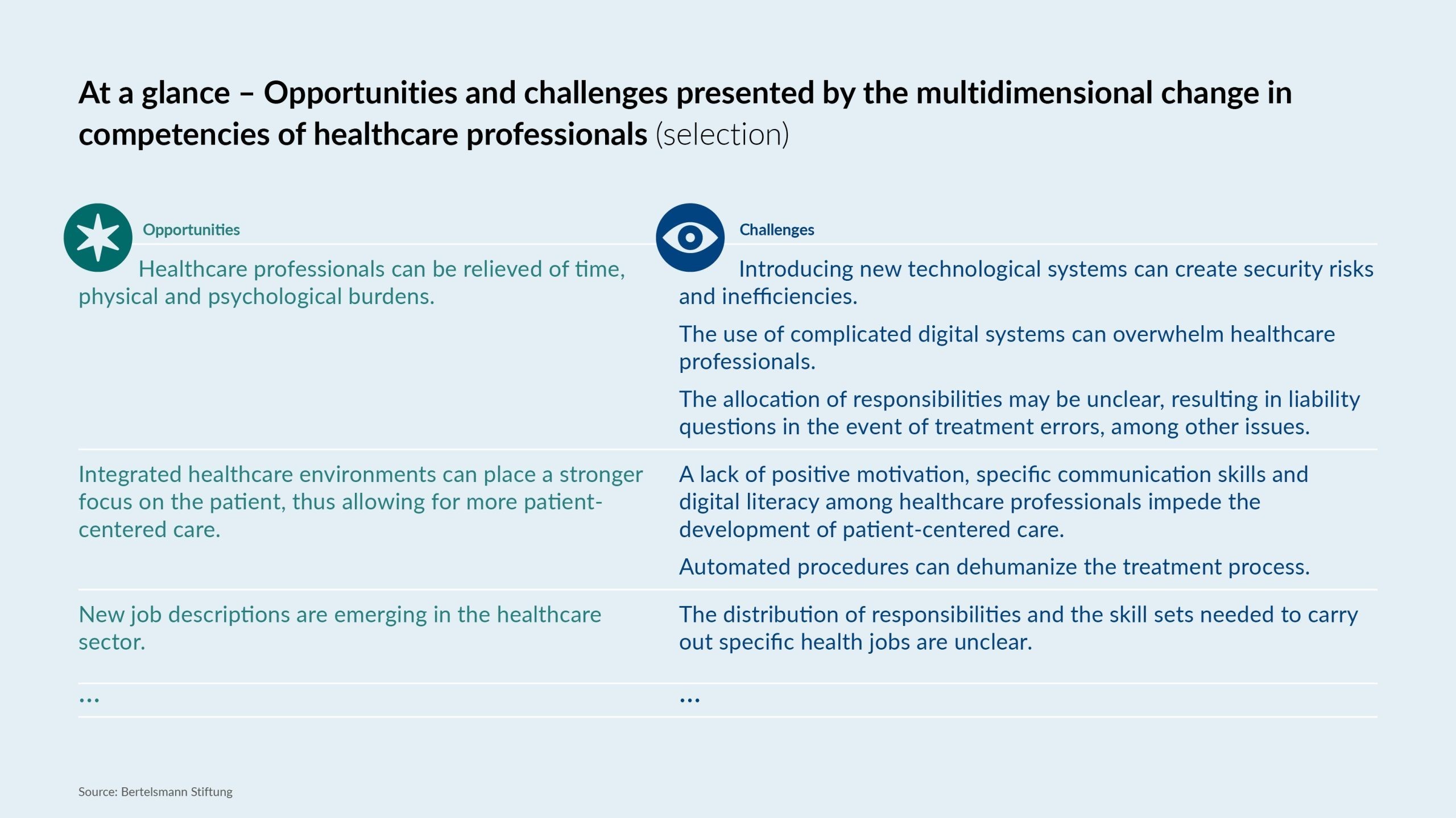Whether it is creating software solutions for use in analyzing MRI images, systems designed to optimize bed utilization rates or applications to help with monitoring patients’ vital signs or making treatment decisions, the tech giants are a powerful driver of digitalization processes in healthcare. The innovative solutions delivered by Siemens, IBM and others have great potential to improve patient care. However, these innovations also bring about a number of changes to healthcare as a profession, presenting it with several challenges. Ethicist Prof. Christiane Woopen and a team of researchers have explored these issues in detail, presenting them in a study conducted on our behalf.
The market power of global corporations in the healthcare sector is growing. The use of Apple’s Apple Watch as a health tracker or Amazon’s Alexa as an AI-based symptom checker are just a few examples of how tech giants aim to support individual health with their digital offerings. But end users are not the only ones being targeted by big tech companies with their health-related products and applications. These innovations are also developed for use by those who work in the healthcare sector.
The range of innovations is immense, and the list of corporate giants making inroads into the daily work of healthcare delivery continues to grow. Alibaba, Amazon, Apple, Google, Huawei, IBM, Intel, Meta, Microsoft, Nvidia, Philips, Samsung, SAP, Siemens, Sony, Tencent – all of these tech giants have mountains of data at their disposal that they can mine from the health information generated by their users. They can also draw upon vast resources and their unparalleled digital expertise, which they then bring to the healthcare service provider market in a variety of ways. This includes, for example,
- Wearables that can be used as tools in recording patients’ vital signs
- Health apps, many of which can be prescribed for therapeutic purposes
- Virtual assistance systems or digital avatars that include voice assistance systems used to influence clinical workflows
- Augmented reality (AR) and virtual reality (VR) applications that can, for example, be used in training by simulating operations or medical examinations

Together with her team of researchers, ethics professor Christiane Woopen conducted a comprehensive study of tech giants in the healthcare sector on behalf of the Stiftung. The study includes an analysis of how corporate innovations are leading to a shift in the skill sets required for those working in healthcare. It also takes a closer look at the opportunities and risks associated with this development.
One thing is certain: With the increasing advances in medical technology over the past few decades, healthcare professionals are facing ever-expanding patient data sets. At the same time, the complexity of managing and interpreting the sheer volume of data in the interest of patient well-being is also growing. Whether it’s blood tests and other laboratory results, vital signs, behavioral patterns, information from medical imaging procedures or sensors placed either within or on the human body – all the data generated by these activities is forming the basis of efforts to optimize diagnostics and treatment, as well as the exchange of knowledge and data between stakeholders in the healthcare system.
These developments create an opportunity, as both digital solutions and AI-based applications can relieve the burden of ever-growing workloads on staff, assist them in making complex medical decisions, and help improve the quality of care. For example, radiologists who used to spend hours viewing and analyzing CT or MRI images, and thus frequently suffered from so-called eye fatigue, can increasingly rely on AI-based evaluation tools, which allow them to devote more time to their patients.

Nevertheless, this shift requires that the users of these innovations in hospitals or private practices must understand how they work and be able to operate them. They must therefore have the digital skills and expertise needed if we are to expand and efficiently leverage healthcare networks among all stakeholders.
This poses a challenge, as most health professionals continue to carry out traditional roles in care delivery contexts. For example, trauma surgeons will still be trained about the best surgical procedure, but will not learn how to use AI-based software properly to simulate specific surgical techniques. Digital transformation is generating adapted and, in some cases, entirely new kinds of jobs in healthcare, particularly in the field of medical or life science informatics. These changes are also leading to a redistribution of responsibilities.
The extent to which this multidimensional kind of change is affecting how health professionals view their work, what this means for the day-to-day working life of those who still bear traditional roles and responsibilities, how training and continuing education in the sector must adapt to such change, and what actions are needed – all of these issues are discussed in detail in our “Tech Giants in Healthcare” study.


